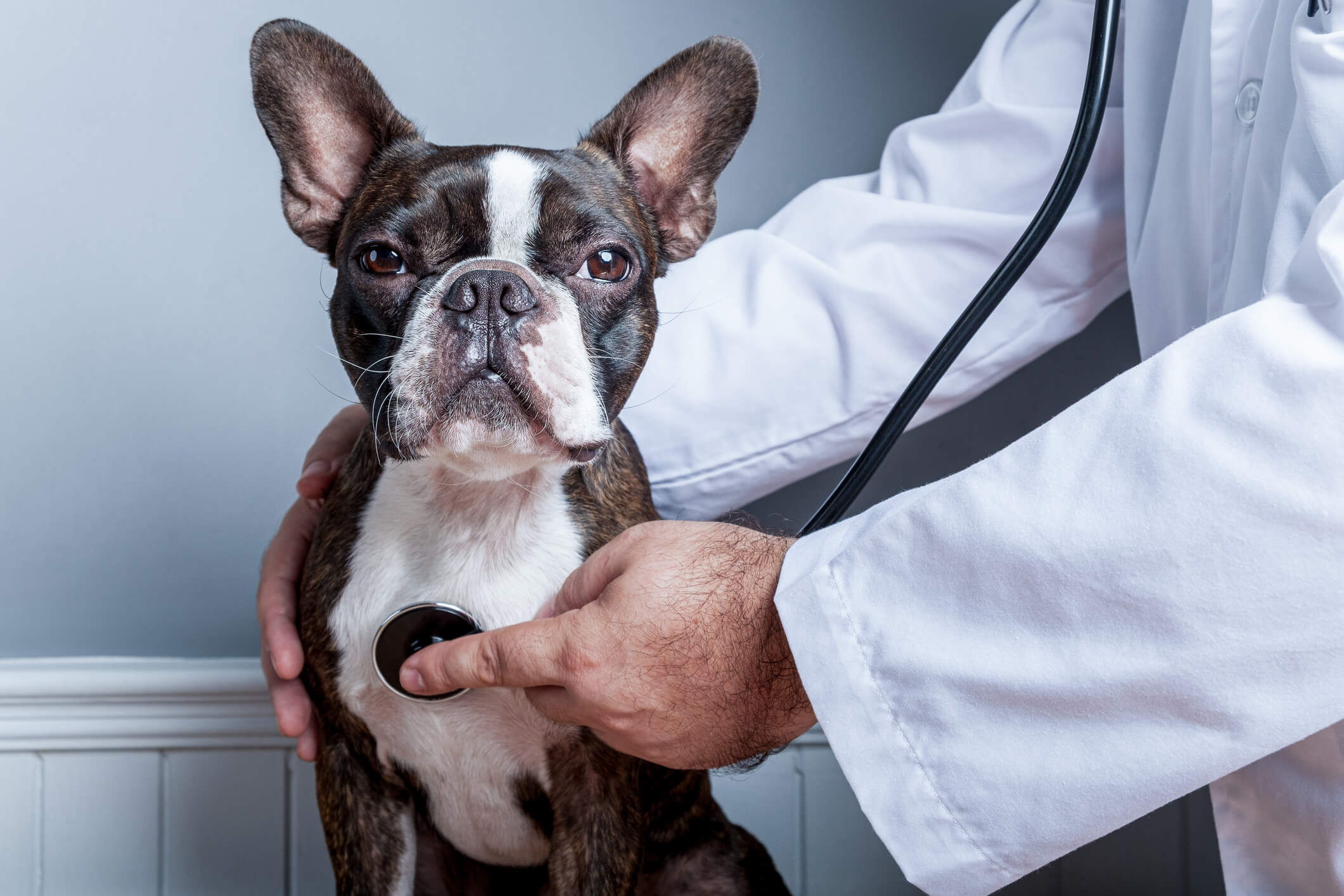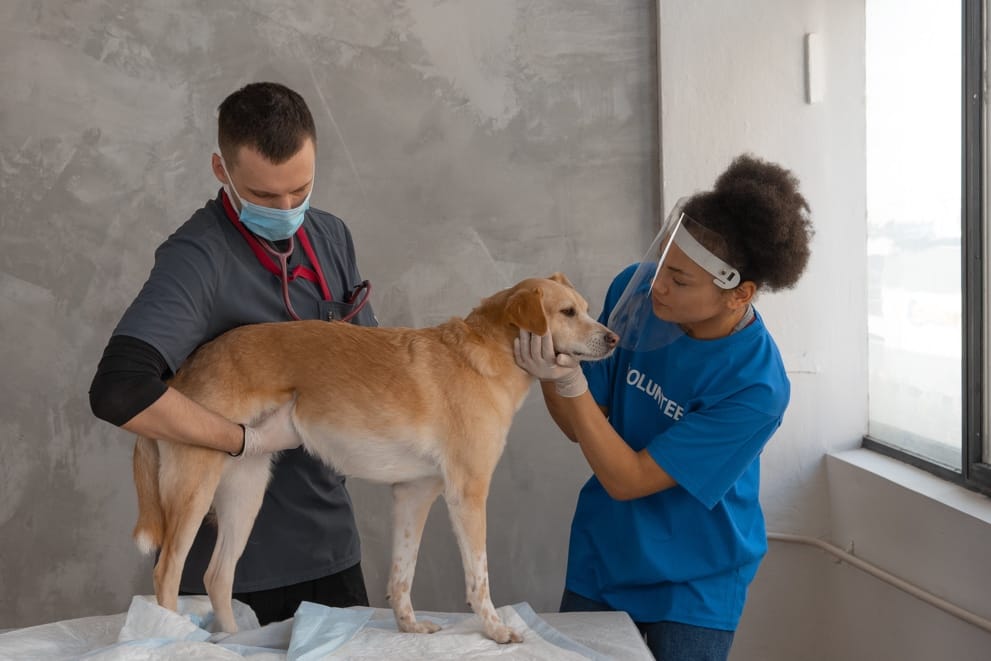Pets and Seasonal Allergies

Many pet owners are surprised to learn that dogs and cats can suffer from seasonal allergies like humans. Like us, they can react to common environmental allergens like ragweed, grasses, pollen, mold, and trees. If you've noticed your furry friend scratching more often or behaving unusually, there's a chance they may be dealing with allergies.
Understanding Seasonal Allergies in Pets
Pets experience allergies when their immune system reacts to substances in the environment that it perceives as harmful, even when they aren't. When exposed to these allergens, their bodies produce histamines, which lead to inflammation, itching, and discomfort. These allergies typically flare up during specific seasons—mainly spring, summer, and fall—when airborne allergens are at their peak. The most common allergens for pets include:
-
Ragweed: Common in the late summer and fall, ragweed is one of the leading causes of allergies in humans and pets.
-
Grasses and Pollens: These allergens are more prominent in the spring and early summer when plants bloom.
-
Mold: While mold can cause problems year-round, it tends to be more noticeable in damp seasons like spring and fall.
-
Trees: Tree pollen can affect pets in the spring, especially when trees begin to shed pollen into the air.
The signs of allergies in pets can vary, but they are often similar to what humans experience—itchiness, inflammation, and discomfort. Recognizing these symptoms early is important to prevent the condition from worsening and to help your pet feel better.
Common Signs of Allergies in Pets
Here are some of the key signs and symptoms to watch out for if you suspect your pet might be suffering from allergies:
-
Red, Puffy Eyes: Just like humans, pets can develop red and swollen eyes due to allergies. You may notice your pet blinking or squinting more often than usual, as the irritation causes them to seek relief.
-
Red Chin or Small Bumps: Small pimples or bumps around your pet's chin, or even on other areas of their body, can be a sign of contact with allergens. This is especially common in pets that like to roll in the grass or spend time in the yard.
-
Hair Loss: Excessive scratching, licking, or biting can lead to bald spots or thinning hair, particularly around the face, paws, and tail. Hair loss can also result from skin infections, which sometimes develop as a secondary complication of allergic reactions.
-
Ear Discharge: Allergies can often cause ear infections, especially in dogs. If you notice a waxy or smelly discharge from your pet's ears, shake their heads, or scratch their ears frequently, it's a sign that something may be wrong.
-
Open Sores or Rashes: Irritated skin can lead to open sores or rashes, especially if your pet constantly scratches or licks the affected areas. These sores can become infected, which may require medical treatment.
-
Constant Rubbing: If your pet rubs its snout or body against furniture, carpets, or walls more often than usual, it could be a sign of itchy skin caused by allergies. This behavior is a way of trying to relieve the discomfort.
-
Hot Spots: Hot spots are areas of inflamed skin that are red, moist, and painful to the touch. They often develop as a result of excessive licking or scratching and can be a common issue for pets with allergies.
Temporary Treatments to Relieve Allergy Symptoms
While dealing with seasonal allergies can be uncomfortable for your pet, you can take steps to relieve them. These temporary treatments can help manage their symptoms and reduce the impact of allergens:
-
Regular Bathing: Giving your pet frequent baths with hypoallergenic shampoos can help wash away allergens from their coat and skin. Look for shampoos designed specifically to soothe irritated skin and reduce inflammation. This can provide immediate relief from itching.
-
Wipe Their Paws: After outdoor walks, it's a good idea to wipe down your pet's paws with a damp cloth. This helps remove pollen, grass, and other allergens that they may have picked up during their time outside. Doing this regularly can minimize the amount of allergens your pet brings inside the house.
-
Use Antihistamines: Some over-the-counter antihistamines, such as Benadryl, can be used to reduce allergic reactions in pets. However, it's essential to consult your veterinarian before giving your pet any medication, as not all antihistamines are safe for animals, and the dosage will vary depending on your pet's size and breed.
-
Hydrocortisone Creams: For pets suffering from itchy hot spots or inflamed skin, applying hydrocortisone creams can help reduce itching and inflammation. However, avoid using these creams near your pet's eyes or face. Be sure to follow your veterinarian's recommendations for safe use.
-
Environmental Adjustments: Keeping your home clean is key to managing allergens. Vacuum frequently to remove pollen, dust, and other particles from carpets, floors, and furniture. Using air purifiers can also help filter allergens from the air, making your home a more comfortable environment for your pet.
When to See the Vet
If your pet's allergy symptoms persist or worsen, it's important to consult your veterinarian. While temporary treatments can provide relief, your vet can help diagnose the underlying cause of the allergies and develop a long-term management plan. In some cases, prescription medications or allergy shots may be necessary to help control your pet's symptoms.
Seasonal allergies can be frustrating for both you and your pet, but by staying vigilant and addressing symptoms early, you can help make the changing seasons more comfortable for your furry friend. Keep an eye on any unusual behaviors and symptoms, and always consult your vet if you're unsure about the best course of action. With the right care, your pet can enjoy the great outdoors, even during allergy season.
Get insurance plans with wide-ranging coverage options






